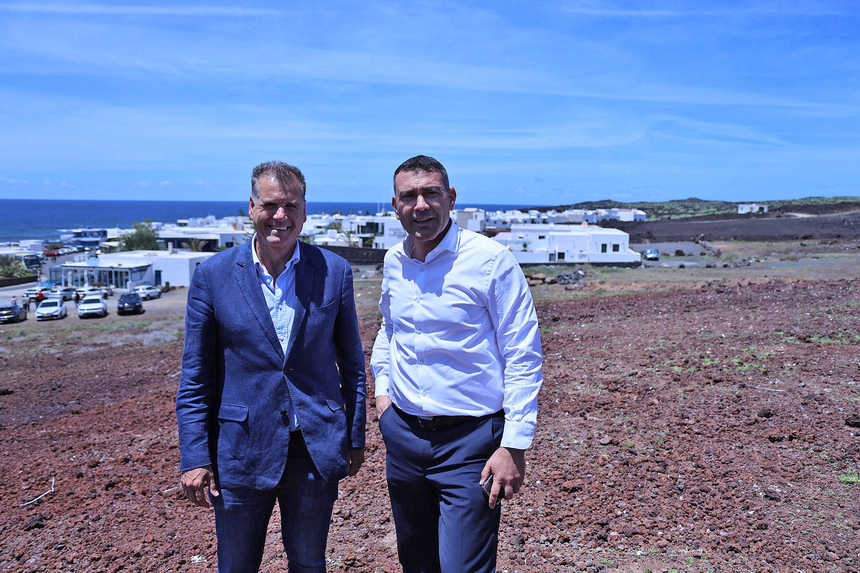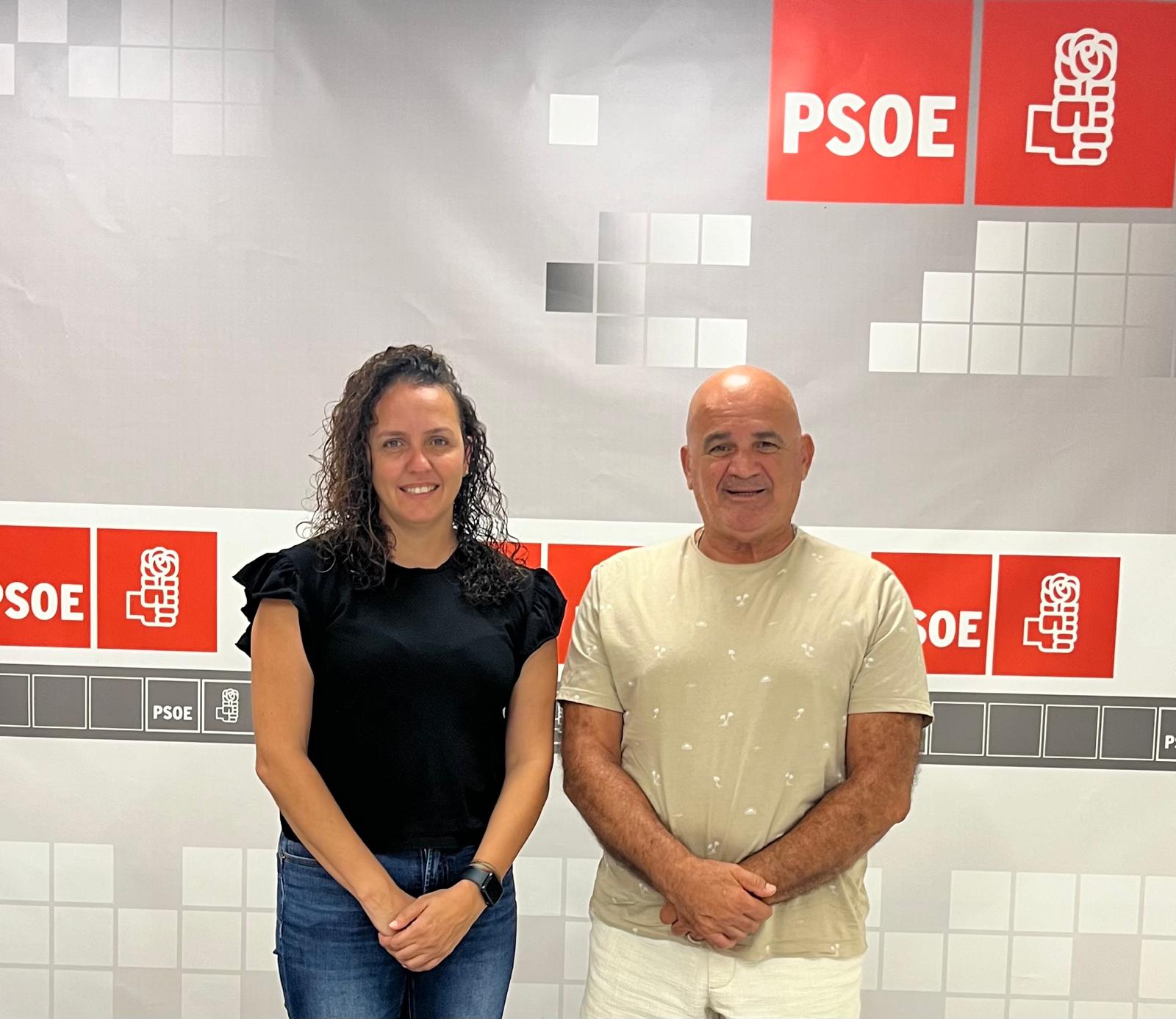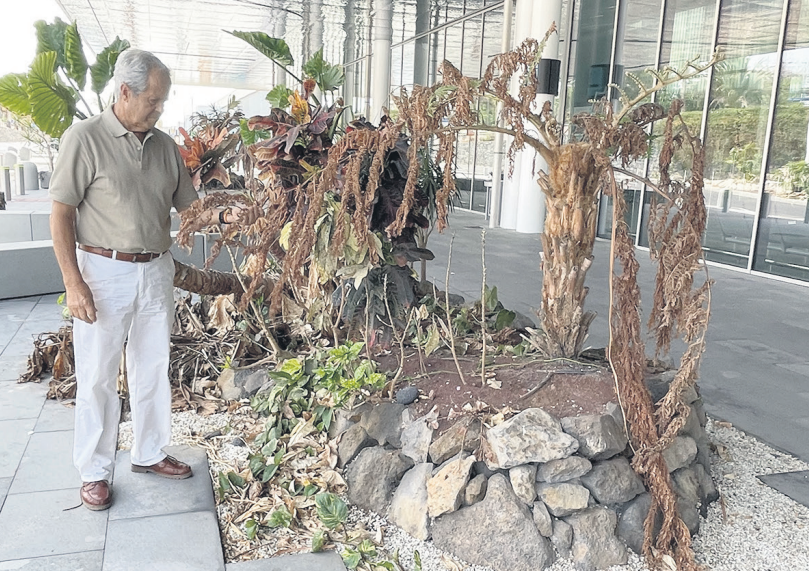- Dávila and Valido Urge the Spanish Government to Establish an Airport Regulatory Body
- The President of the Cabildo and the MP for Santa Cruz de Tenerife criticise the state government for preventing Canary Island administrations from using surplus funds while forgiving Catalonia’s debt
- They demand greater control of plant protection products at customs to prevent issues like the phylloxera outbreak
Dávila and Valido Urge the Spanish Government to Establish an Airport Regulatory Body
The President of the Cabildo and the MP for Santa Cruz de Tenerife criticise the state government for preventing Canary Island administrations from using surplus funds while forgiving Catalonia’s debt
They demand greater control of plant protection products at customs to prevent issues like the phylloxera outbreak
The President of the Tenerife Cabildo, Rosa Dávila, and the MP for the province of Santa Cruz de Tenerife, Cristina Valido, today (Tuesday 26) called on the Spanish Government to create a regulatory body for airports. Dávila and Valido held a working meeting at the Insular Palace to discuss strategic issues of island-wide interest.
Rosa Dávila expressed her concern about the current situation at AENA, stating, “I am very worried about the circumstances facing AENA. We have discussed multiple times the need for a regulatory body – this is already included in the Statute of Autonomy – where there must be shared management of ports and airports. We have it for the ports, and now we need it for Canary airports because it is unreasonable for us to learn about rate increases affecting all residents of Tenerife and the Canary Islands through the media.”
Cristina Valido emphasised the urgent need for a meeting between the Minister of Territorial Policy, Ángel Víctor Torres, and the Canary Islands Government to discuss the necessary body for facilitating the involvement of Canary administrations in the planning and management of our airports. In the last review meeting of our investiture agreement, we mentioned to the ministers and officials from different areas of the Spanish Government that managing and planning Canary airports is one of the main issues, as stated in our Statute of Autonomy, which is also legally binding.”
Dávila and Valido agreed on the negative image portrayed by AENA at Tenerife airports: “We can collaborate and assist to ensure that those passing through these airports do not leave with the terrible impression they currently have. It is unacceptable for us to learn through the press that a gardening company has gone bankrupt, leaving employees without work and gardens unattended. Or that there is a handling service strike, which also prejudices passengers visiting Tenerife and leaves them with this detrimental image,” Valido remarked. She also insisted, “It is unacceptable that decisions are made without our involvement regarding issues like, for example, the increase in airport charges, which completely disregards our right to the uniqueness acknowledged in our economic and fiscal regime. Our airports are not the same as those on the mainland; they are entirely different and are a lifeline for an area divided into eight islands.”
Rosa Dávila reminded us that “airports are strategic infrastructures for communication between our islands and with the outside world. In the archipelago, we have no alternative, which is why the Canary Islands Government must be present, and we, as cabildos, also want to participate in these management bodies that need to be established, and for which Minister Ángel Víctor Torres is still delaying contacting the Canary Islands Government to drive it forward.”
Spending Rule and Forgiveness of Cataluña’s Debt
Cristina Valido commented on the upcoming forgiveness of Cataluña’s debt by the Spanish Government: “Once again, it illustrates how there is an intention to treat everyone equally, but they are not the same. The Canary Islands have fulfilled their obligations and have a perfectly manageable debt, and financing this debt does not resolve much for us. What is important for the Canary Islands is to finally amend a spending rule that prevents institutions like the Tenerife Cabildo or the La Palma Cabildo, which have pressing needs, from using their surpluses. It is absurd that while billions of euros in debt are being written off for other regions and special financing agreements are being reached, the needs of a territory like the Canary Islands—which is genuinely unique—are not being addressed.”
In this regard, Rosa Dávila firmly stated, “Next week, the Spanish Government will meet with Cataluña and approve a write-off of their debt, and that money will be taken from the Canarians and Tenerife residents’ health care, education, social services, and infrastructure investments. All this is happening while we are being prevented from spending our own money due to a spending rule that, because there is no State Budget, the Spanish Government does not allow us to use.”
“You already know my position very well: The money of Tenerife stays in Tenerife. The Tenerife Cabildo has used all the funds available for the people of Tenerife, and it will not be used to finance the Catalans or their investments or their debts. The money of Tenerife stays in Tenerife, and I anticipated this last year when we spent all the money we had. This has forced us to develop a financial economic plan this year, and next year we will devise another one. But what we will not do is watch the money remain with the Spanish Government only to end up giving it to the Catalans,” asserted the President of the Tenerife Cabildo.
Increased Phytosanitary Controls to Prevent Outbreaks Like Phylloxera
Another issue discussed in the meeting between Dávila and Valido was the phylloxera outbreak affecting the island of Tenerife. In this regard, the MP stated, “We will request the presence of various Ministers to discuss external health and the phytosanitary inspection controls at our ports, as these pests come from abroad. When our products are about to leave, they face numerous problems, and meanwhile, we continue to see how products from other parts of the world reach Spanish markets without undergoing the same phytosanitary controls. We are at a strategically critical crossroads geographically, and our ports need to enhance their phytosanitary inspections.”
Furthermore, Rosa Dávila stressed that from the very beginning, the Tenerife Cabildo and the Canary Islands Government have been working in coordination with the sector to prevent the contagion from spreading, and she highlighted the need to demand from the Spanish Government “that there be more personnel at customs and in phytosanitary control. Greater phytosanitary control is necessary to avoid these problems.”
Transport and Railways
Rosa Dávila expressed gratitude for Cristina Valido’s efforts to ensure that the upcoming Transport Law to be approved in the Congress of Deputies includes a specific section for the funding of railways in the Canary Islands. “We hope that next week we will be able to sign a protocol that would establish that the Spanish Government will finance the railway systems in Tenerife and Gran Canaria, and this is thanks to the extraordinary work carried out by the Canary Islands Government and Cristina Valido.”
Valido added the importance of “continuing the fight to reintroduce free public transport next year. It will not be easy as free transport has already disappeared throughout the state, but we will keep fighting for this difference in a territory as small as the Canary Islands, which is central to its mobility strategy, allowing people to travel on public transport for free. This is crucial for us, in islands where we do not have too many alternatives for mobility due to their topography and population concentration.”














